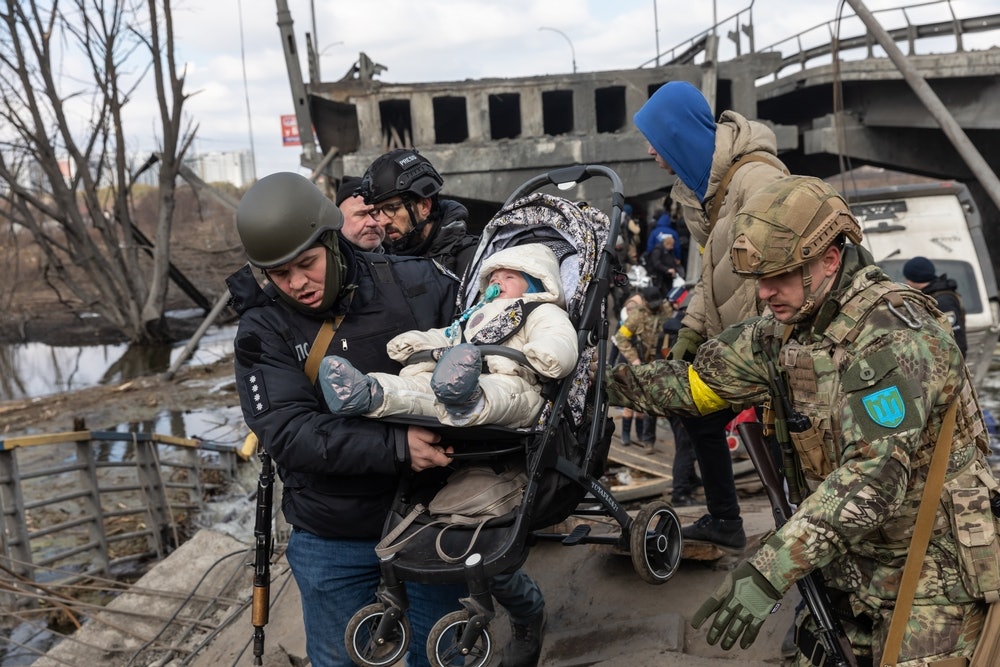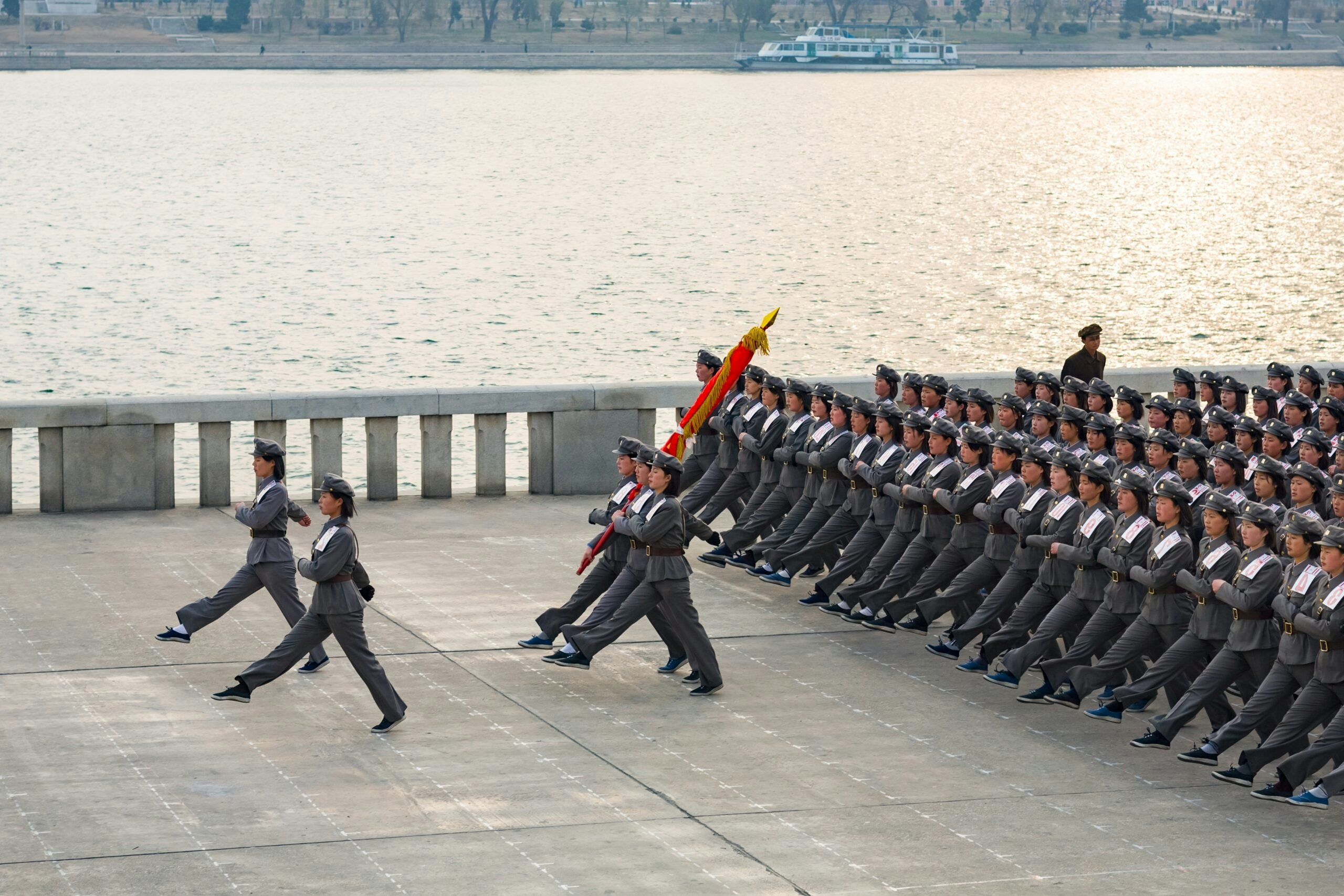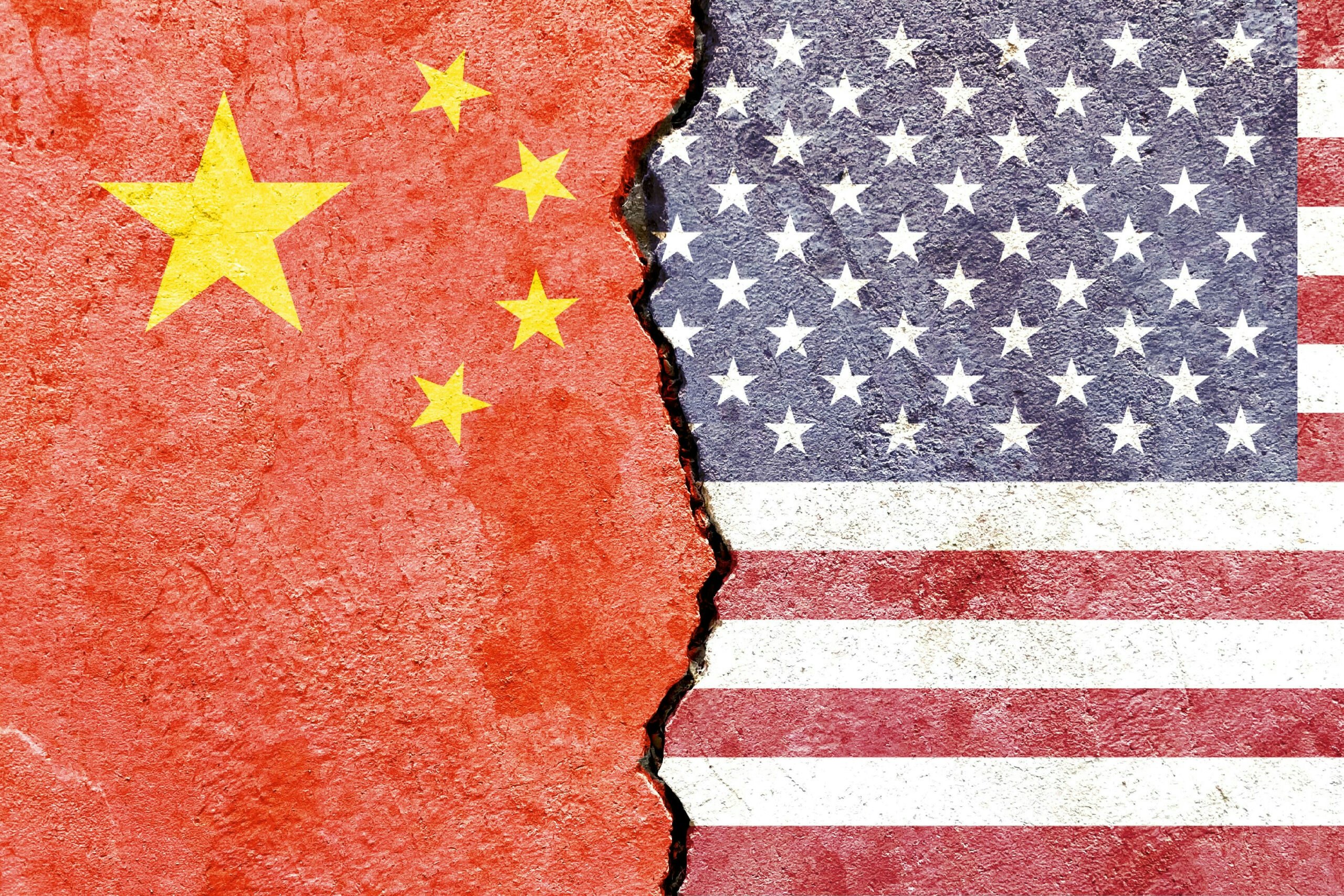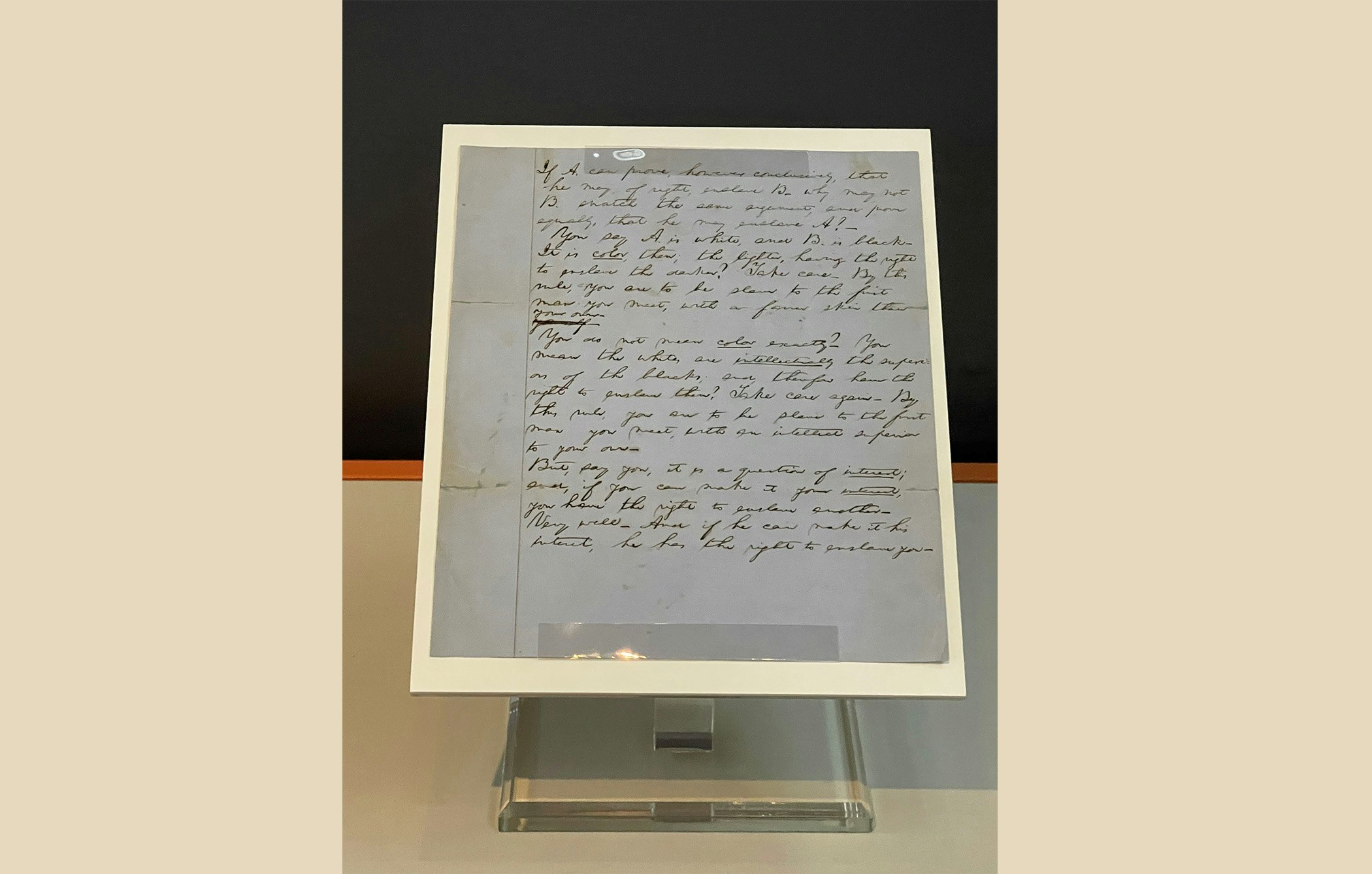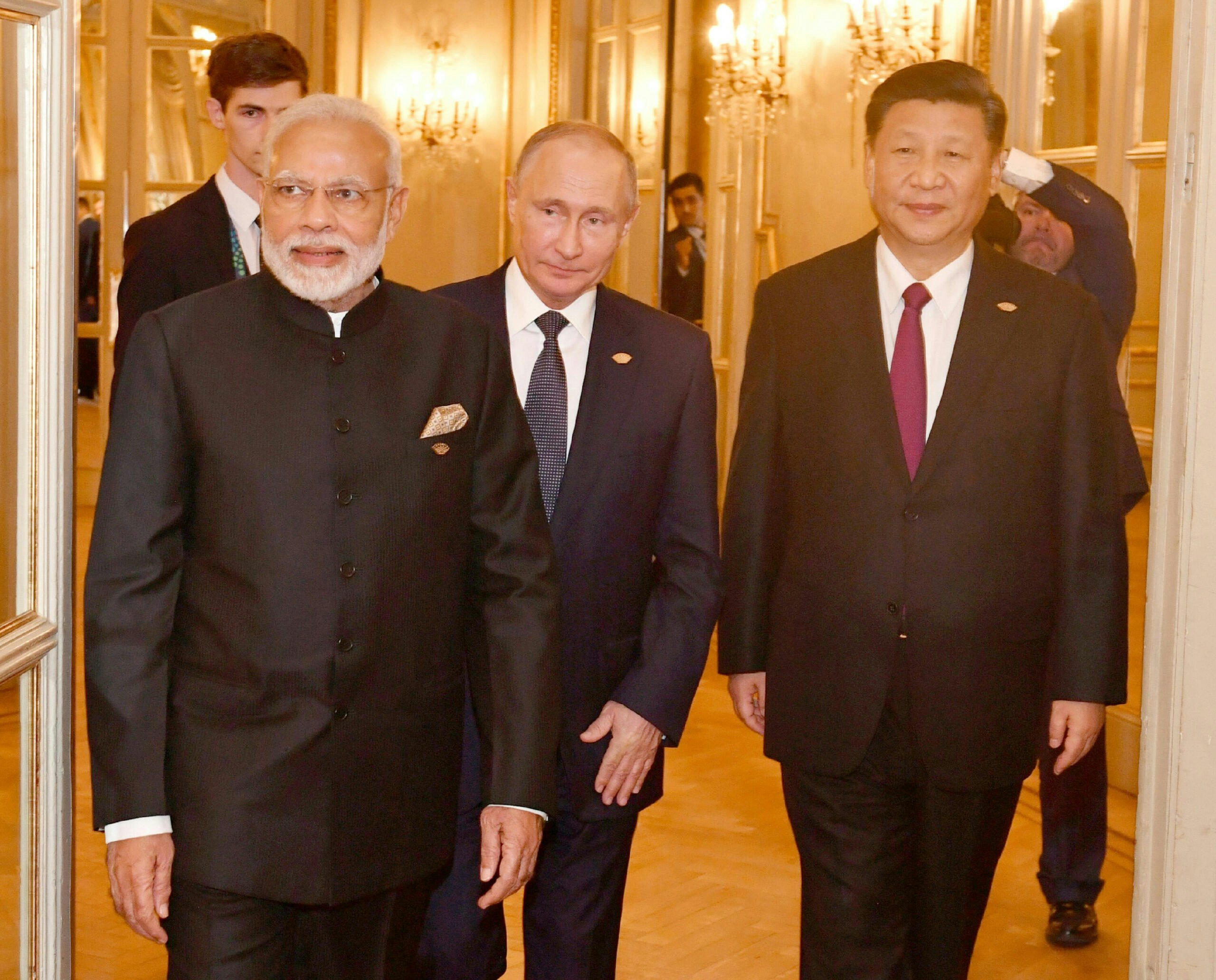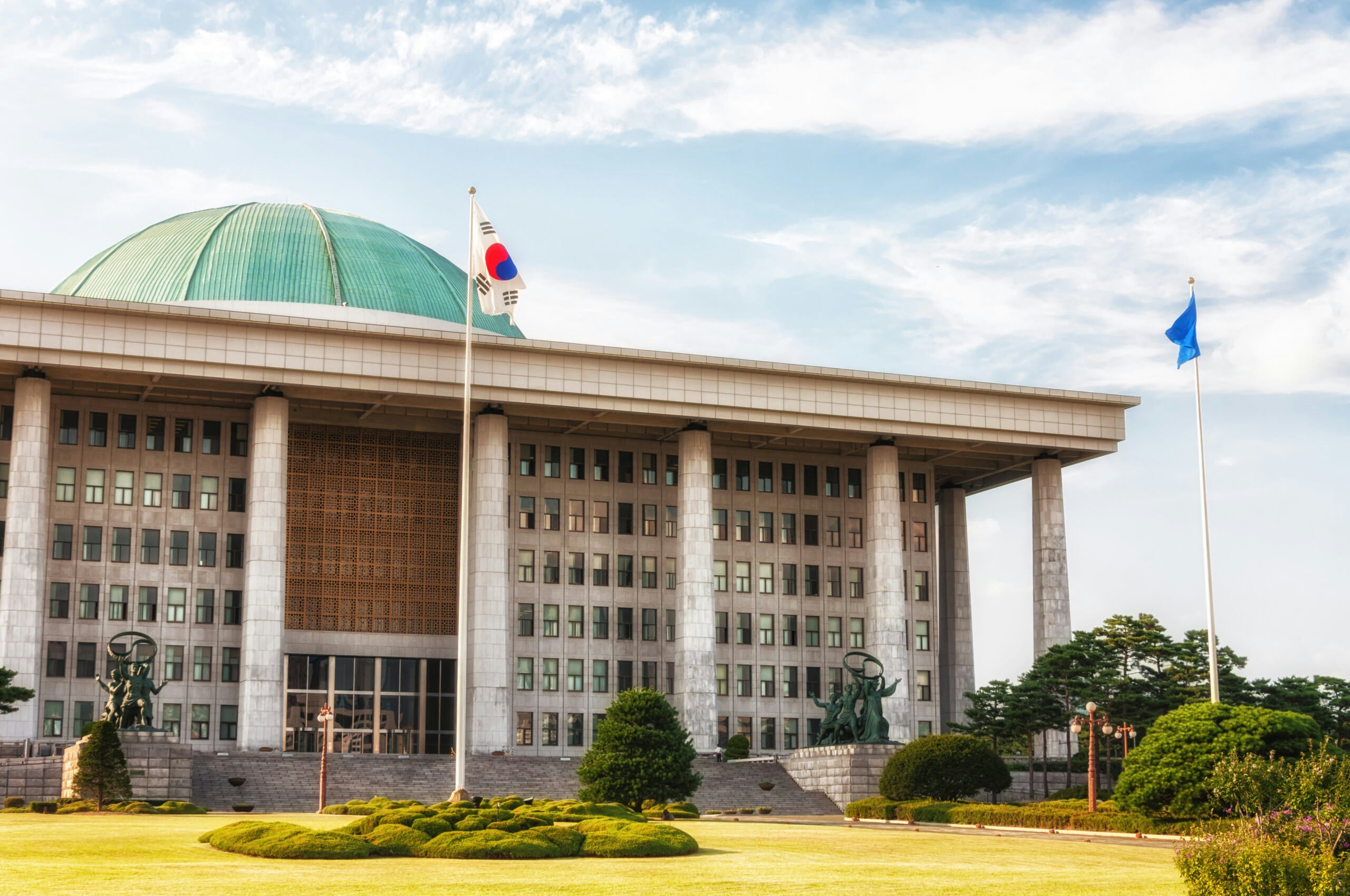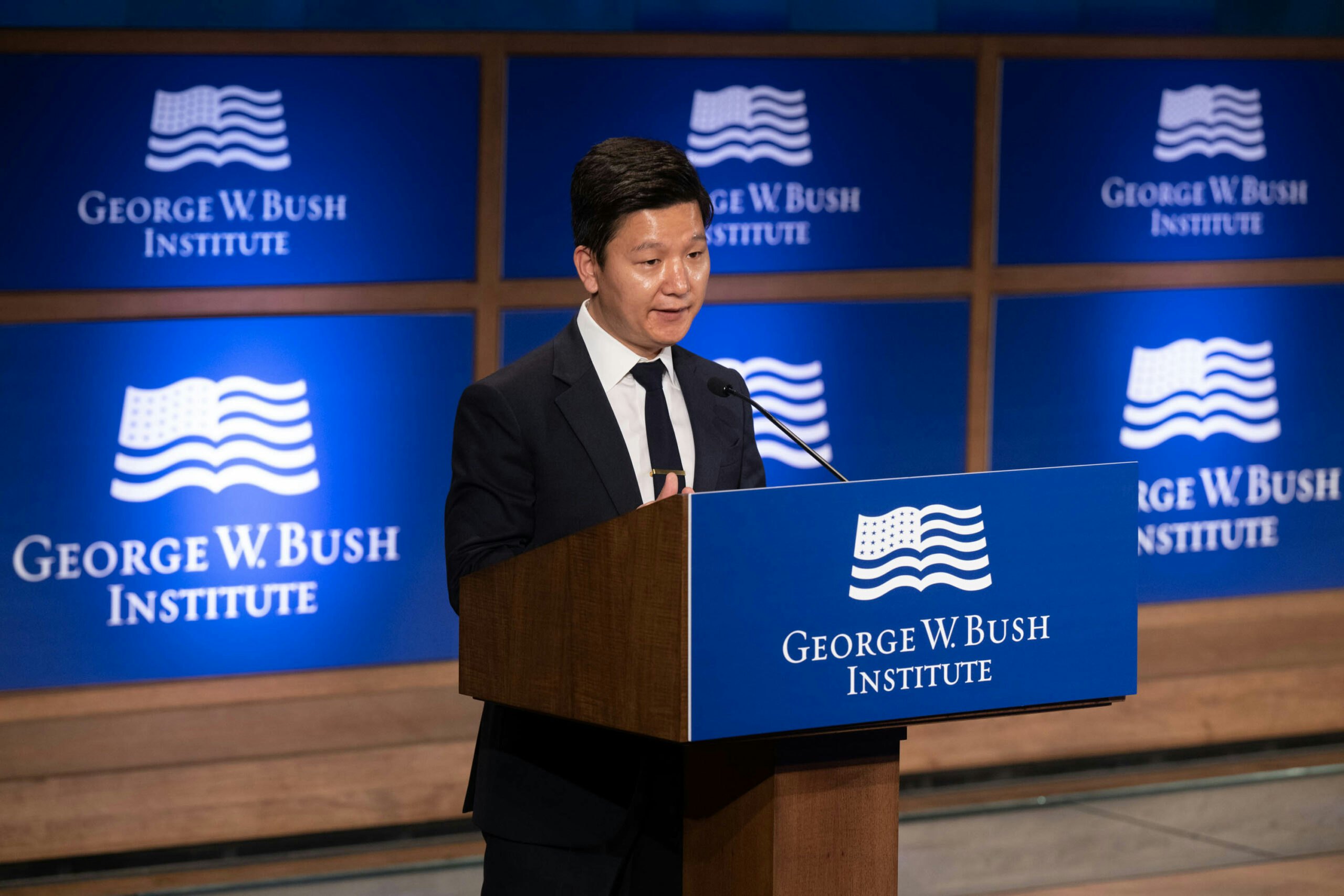Revitalizing American support for democracy and human rights in the 21st century. A Call to Action by Nicole Bibbins Sedaca
“The success of freedom rests upon the choices and the courage of free peoples.”
– President George W. Bush –
Encouraging democratization and respect for human rights globally are essential to advancing American values, as well as security and economic interests around the world. The values that underpin democracy and human rights are not just American values — they are universal ones.
This Call to Action urges a wide array of actors in American society to redouble their efforts to support democracy and human rights globally for the prosperity, stability, and well-being of our own country; for democracies around the world; and for people living under authoritarian rule.
A Look Back: American Historical Support of Democracy
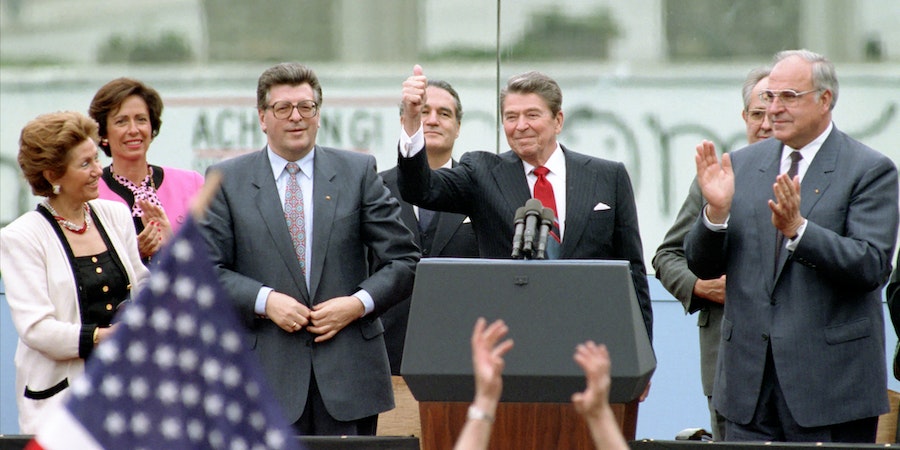
Since the 1970s, democracy and human rights have played a key role in the formulation of American foreign policy. At the height of the Cold War, as the Vietnam War drew to a close and the United States saw significant human rights progress at home through the Civil Rights Movement, American civil society actors began to look more intensively at how American foreign policy aligned with the values enshrined in foundational American and international documents. These activists pushed the American government to ensure these values were reflected in our foreign policy.
Because we are free, we can never be indifferent to the fate of freedom elsewhere. Our moral sense dictates a clear-cut preference for those societies which share with us an abiding respect for individual human rights.”
PRESIDENT JIMMY CARTER, 1977 INAUGURAL ADDRESS
Even so, American support for democracy and human rights has been a dichotomous story. The United States has been a bold supporter of democracy and human rights activists, leading global efforts and standing against the Soviet Union and despots in many countries.
Simultaneously, the United States has at times supported dictators or nondemocratic movements, periodically compromising these values for economic or security interests. Those compromises have been counterproductive and strategically unwise, as well as morally wrong.
Throughout American foreign policy, what has been consistent, however, is the inclusion of democracy and human rights as part of American foreign policy; a bold, relentless, and active civil society community; and a mobilized American citizenry that has demanded American action. And when the United States has led on these issues, other democracies have followed this lead.
“The objective I propose is quite simple to state: to foster the infrastructure of democracy, the system of a free press, unions, political parties, universities, which allows a people to choose their own way to develop their own culture, to reconcile their own differences through peaceful means.
“…(i)t is time that we committed ourselves as a nation — in both the public and private sectors — to assisting democratic development.”
PRESIDENT RONALD REAGAN, WESTMINSTER, 1982
At the heart of the American movement for fostering democracy and protecting human rights abroad has been American civil society organizations and citizens. From the 1941 founding of Freedom House to the founding of the National Endowment for Democracy in 1983 and its four core institutes to the hundreds of other active civil society organizations which have valiantly raised awareness, lobbied for policy change, supported activists, and refused to be silenced in the face of at-times overwhelming nondemocratic forces, American civil society has been the engine behind America’s presence and policies on these issues.
Today, we face challenges to this tradition. Nonetheless, American civil society and its engine for good remain unchanged. Likewise, the case for democracy remains equally compelling, and the need for all sectors of American society to join the fight is equally needed.
A Look Ahead: The Expanded Case For Supporting Democracy and Human Rights
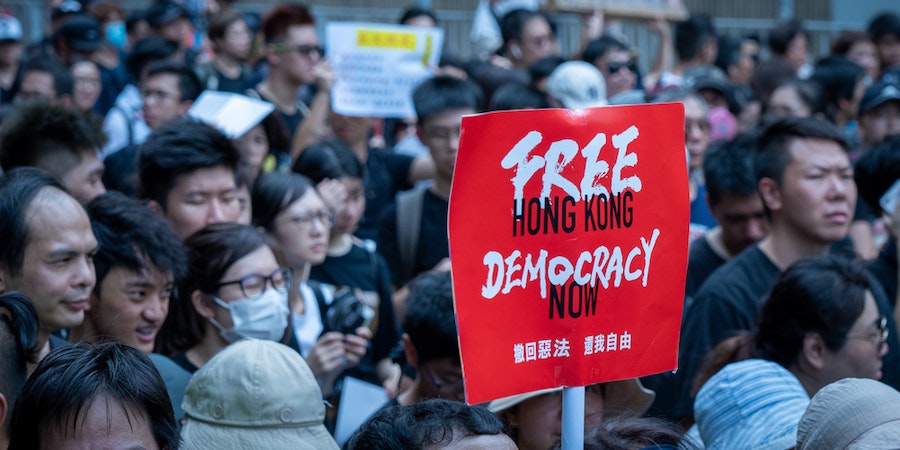
The historic case for the support of democracy endures. America’s security and economic interests are best advanced in a global order predicated on democratic values — the rule of law, transparency, civilian-controlled institutions, and human dignity — with stable democracies as partners. These democratic allies provide more security across the globe, are better economic partners for the United States, and seek to protect human rights and the democratic values upon which the United States was founded.
The greatest security threats in the world — and specifically to the United States and its interests — continue to originate from nondemocratic governments, including China, Russia, Iran, and North Korea, and regional destabilizers such as Venezuela and Saudi Arabia. While terrorism knows no boundaries, the vast majority of terrorists emanate from nondemocratic countries where violence is their chosen weapon of expression.
Democratic nations continue to provide the most stable and noncorrupt environments for American economic engagement. Where American businesses are able to operate under the rule of law and democratic governance, they are best positioned to advance American economic interests through access to open markets for American goods.
Similarly and simply, our core foundational values are protected only through the promotion and defense of democracy and the preservation of human rights.
For as long as whole regions of the world simmer in resentment and tyranny — prone to ideologies that feed hatred and excuse murder — violence will gather and multiply in destructive power and cross the most defended borders and raise a mortal threat. There is only one force of history that can break the reign of hatred and resentment and expose the pretensions of tyrants and reward the hopes of the decent and tolerant and that is the force of human freedom.”
PRESIDENT GEORGE W. BUSH, 2005 INAUGURAL ADDRESS
While these age-old truths endure, current events or perceptions that appear to challenge the importance of democracy and human rights often obscure or undermine these truths. The following developments have contributed to this skepticism. Ironically, each issue highlights the increased — not decreased — relevancy of democracy and human rights in our current context.
Challenges from Global Authoritarians
In order to challenge American leadership, moral and security interests, and economic priorities, China and Russia are actively seeking to challenge the United States and shift the global order away from democratic values, rules of transparency and openness, and respect for human rights. Establishing and maintaining themselves as global leaders require them to consistently challenge democratic values and institutions, American leadership, and a democratic global world order in which human rights flourish.
Russia’s active engagement in undermining democratic elections and institutions in new and established democracies, as well as their military engagement in Ukraine and Syria are part of these efforts. China is also seeking to use its economic power to align developing countries to its agenda and use existing global institutions — or create new ones — to roll back the democratic order, plus extend its reach and philosophy into American universities and businesses within mature democracies.
Faltering Economic Development
The economic struggles of some newer democracies have strained democratization efforts and public backing. In countries where economic development has been slow or difficult, citizens have at times lost patience with democratic processes, which can be slow in delivering changes on needed but challenging reforms. A 2018 Pew Research Center poll indicated a strong link between citizens’ concerns about economic growth and assessment of democratic performance. For instance, the report showed that in Hungary (where democracy is in significant decline), eight of every 10 people surveyed who said the country’s economic situation was poor were also unhappy with the country’s democratic performance.
Meanwhile, China’s aggressive economic expansion, combined with its illiberal and often corrupt engagement in developing nations is seen as an alternative means of economic growth free of the perceived pitfalls of democratic development.
Rise of Populism
Where Western democracies experience the rise of populist leaders and undemocratic sentiments and movements, skeptics have questioned democratic systems that produce illiberal outcomes. While concerns about these populist trends are valid, the most effective counter to the damaging effects of unbridled populism is strengthened democratic institutions. Such institutions provide a systemic check on illiberal impulses of leaders or undemocratic groups and a vehicle for citizen engagement and protect minority rights under majority rule.
Continued Human Rights Abuses
2019 saw continued conflict and displacement in Syria, violent ethnic attacks in Burma (also known as Myanmar), crackdowns in Venezuela, Uighur concentration camps in China, and ongoing ethnic strife in South Sudan, to name only a few sites of massive human rights violations. It is not coincidental that these abuses occur in nondemocratic countries where basic human rights are not protected and there is a lack of democratic institutions to restrain the use of violence.
Democracy and War
American military engagement in Iraq and Afghanistan is falsely perceived to have been waged in order to promote or impose democracy. This misperception has also led to calls for the United States to stop supporting democracy overseas, because American democracy assistance is incorrectly interpreted as military intervention. Younger generations, which are more familiar with these wars than with the longer arc of historical democratic developments, are more skeptical about democracy support as a concept.
For those who have long opposed the United States’ role in state building, it is important to differentiate between that comprehensive effort and supporting democratic institutions at the behest of the local populations.
How to Talk about Democracy
The changing global environment requires a refreshed message and expanded body of messengers.
The aforementioned case for democracy remains and should be complemented with the following points:
- Democratic values have underpinned a global trade system, security collaboration, and economic development, all of which have benefited the United States for decades.
- Democracy is a system of governance that provides a structure for the creation of effective policies that advance majority interests and protect minority rights. Democracy is not a guarantor of perfect democratic performance and policies; rather, it offers a system of governance that allows undemocratic performance or policies to be addressed and remedied.
- Respect for human rights is foundational to the United States, and our commitment at home must extend to the policies we implement abroad. The United States’ story is not one of perfection — it is one of constant work to advance democratic values and commitment to protecting human rights.
- The importance of American global leadership on supporting democracy does not mean the United States has a perfect track record in upholding democratic values — it does not.
- American leadership needs to be humble about the fact that the United States has a mixed history in upholding democratic values and protecting human rights yet confident that these values are universal, that the United States is a strong democracy that has supported the growth of democracy around the world, and that the United States remains an indispensable leader in this important global work.
- The United States government is and must be a leader in supporting democracy and human rights but needn’t be the only leader.
- The United States has contributed to building a global democracy architecture that has helped countless people seeking freedom around the world, created a global community of individuals and nations committed to democratic values, and reinforced the values shared by the United States and countries throughout the world.
- Global support for democracy and human rights is not a partisan issue. Implementation may appear to be different under different administrations and parties, but the history of democracy and human rights policies reveal a story of cooperative bipartisanship.
- The United States’ efforts include political support for democratic governments and activists, public advocacy for democracy and human rights, training of democratic activists, building and strengthening of democratic institutions, creating and advancing regional and international organizations based on democratic values, and much more. These efforts do not include the support of democratization efforts by military force or otherwise imposing it on others.
Supporting Freedom
Through its history, the United States has often been an active support of democracy outside its borders.
Poland
Throughout much of the 1980s, the United States government and civil society, particularly the AFL-CIO’s early support for the Polish labor movement, Solidarity, provided invaluable support to the courageous activists who fought Soviet occupation. Radio Free Europe broadcast crucial information to activists about developments in the West, democracy globally, and support for human rights. This external support played a key role in Poland’s democratization.
Kenya
The United States has supported Kenya’s democratization, including through political pressure from Congress and the executive branch when Kenyan officials committed human rights abuses and through support for Kenya’s first democratic elections in 2002. The United States has provided assistance for Kenya’s continued democratization and opening of space for civil society through election support, civil society programs, and other aid.
Hong Kong
As courageous students and activists took to the street to protest China’s proposed extradition legislation in 2019, the United States government and civil society stood in support of their efforts. Congress passed the Hong Kong Human Rights and Democracy Act that imposes sanctions on those violating human rights in Hong Kong. American NGOs and activists have been vocal in providing support and continued focus on the efforts to roll back China’s undemocratic influence in Hong Kong.
South Africa
After decades of a brutal apartheid system, South Africa made courageous strides to correct its abusive and segregated history, ultimately ending the system in 1994. International pressure — including strong and vocal engagement from American universities, Congress, businesses, and eventually the executive branch — was a significant factor in South Africa’s decision. Prompted by strong civil society pressure, Congress passed the Comprehensive Anti-Apartheid Act of 1986 and numerous American businesses divested from South Africa, sending the strong signal that the United States stood with those in South Africa seeking democracy and a full protection of their human rights.
Voices of Freedom from Around the World
The Freedom Collection is an archive of video interviews that document the struggle for human freedom and democracy. Meet some of the men and women from around the globe as they share their stories — and why it’s so important for the U.S. and the world to support freedom.
Recommendations
The Executive Branch
As the primary shaper of American foreign policy, the Executive Branch must ensure — in word and in deed — that democracy support is a cornerstone of American foreign policy. To do this, the President elected in 2020 must:
- Articulate continuing U.S. support for democracy and human rights, at home and abroad.
- Hire and empower individuals who have an unwavering commitment to democratic values and the support of democracy, not only in key positions such as that of the USAID Administrator or the Assistant Secretary of State for Democracy, Human Rights, and Labor, but also throughout the administration, including those of American ambassadors.
- Use American strength for American values — The United States should continue to advance its security and economic objectives while using its strength and leadership role to simultaneously call for an end to violations of human rights and advocate for democratization globally.
- Strengthen partnerships for democracy support.
- Strengthen domestic voice for global example — American leaders should seek to affirm and strengthen our democratic institutions, such as an independent media, the strength of American democracy, strong legislative checks and balances, and more.
Congress
- Strengthen cadre of democracy/human rights advocates — all members of the Senate and House Committees on Foreign Relations, Foreign Affairs, Armed Services, and Intelligence, as well as other interested members should prioritize and expand their regular briefings from democracy and human rights advocates or regional specialists.
- Make democracy and human rights central — hosting an annual hearing on the state of democracy and human rights in the world and how the administration is supporting democratic developments will ensure that a consistent focus on democracy and human rights and a public record of the administration’s commitment to and plan for supporting democracy.
- Support bicameral, bipartisan democracy caucuses — given the bipartisan nature of democracy support in the past, a bipartisan caucus should be formed to advocate for and address issues impacting democracy around the world.
- Guide democracy and human rights policies — in exercising its oversight, legislative, and funding powers, Congress should elevate the U.S. role of supporting democracy and human rights in foreign policies.
Nongovernmental Organizations and Philanthropic Organizations
- Reach new supporters — American NGOs should continue their efforts to build support for democracy and human rights, focusing on targeting younger generations, addressing skepticism about how democracy support works and the linkage between democracy and human rights, and addressing misunderstandings about the United States’ historical policies in this area.
- Broaden alliances — democracy and human rights NGOs should build and/or broaden alliances with military, academic, and corporate leaders to encourage actors in the security and economic sectors to raise awareness about and advocate for the importance of supporting democracy and human rights.
- Build domestic partnerships — including increasing participation of local leaders in exchanges and outreach, joint advocacy with American communities interested in countries where democracy and human rights NGOs are active, and joint advocacy to Americans outside of Washington on the importance of supporting democracy and human rights.
- Create dedicated advocacy body — a separate and distinct 501(c)(4) organization should be created to advocate for democracy and human rights policies and to support candidates and members of Congress who support these policies.
- Sustain foundational and philanthropic support for democracy/human rights — because of the long-term nature of democracy and human rights work, sustained funding for these efforts are important.
Corporations
- Engage executive and legislative branches — corporate leaders who recognize the importance of democratic institutions and processes in countries where their corporations operate should jointly advocate for democracy support to play a significant role in American foreign policy.
- Include democracy and human rights as key components of business-oriented organizations — organizations such as the U.S. Chamber of Commerce, Corporate Council on Africa, or US-ASEAN Business Council should include “operating in accordance to democratic values and principles” as a core component of their engagement in their respective regions.
- Align and promote democratic internal policies — corporations should seek to align internal operational policies with the values of democracy and human rights and resist external actors — political leaders and authoritarian governments such as China — that would seek to steer countries away from the practices of rule of law, transparency, and anti-corruption.
- Expand corporate social responsibility efforts — where these do not already include a democracy and human rights focus, corporations can expand efforts to promote democracy and human rights.
Local American Political and Civic Leaders
- State and local leaders, including governors, legislators, and mayors, whose communities benefit significantly from democratic partners overseas, should communicate the importance of strong democratic partnerships through vehicles like joint letters to the administration and key legislators.
- Engage faith communities and religious freedom activists — these organizations and communities should build a multifaith coalition for democracy and human rights to advocate for the U.S. government to push for the release and fair treatment of their coreligionists, as well as to advocate transformative political change through democratization.
- Organizations supporting American democratic institutions and civic engagement (e.g., the National Conference on State Legislatures) should urge political leaders to ensure that our foreign policy includes the promotion of the democratic values and institutions that these groups work on domestically.
- Americans who emigrated from countries that remain under authoritarian rule are also strong voices for highlighting the difference between democratic and authoritarian rule and the importance of the United States’ voice in supporting democracy and human rights.
Significant Influencers
- Former presidents — All former presidents should use their voices individually and collectively to speak about the importance of democracy and human rights support to their respective foreign policies. This nonpartisan message, spanning decades of U.S. engagement in the world, will be a powerful reminder that democracy and human rights support is central to American foreign policy, regardless of administration, party, or policy.
- Business leaders — corporate leaders should emphasize that commercial interests and democracy support can and should coexist, including through signing a statement outlining the importance of democracy support to American business interests.
- Veterans and military leaders — respected military leaders and veterans should also sign a similar statement of alignment with democracy support as a key element of our foreign and national security policies.
Media
- Focus on democracy and human rights in campaign 2020 — media organizations covering the presidential debates should include a focus on what values underpin the candidates’ respective policy development, not just on the specific policies at hand.
- Shift from threats to solutions and progress — there is significant media coverage of the threats and challenges to democracy in the United States and abroad. Given the significant and impactful work to strengthen democracy at home and abroad, analytical news programs should increase coverage devoted to increasing awareness about the role of democratic institutions and highlighting positive efforts to strengthen these institutions at home and abroad.
Academia
- Underscore democracy and human rights as part of foreign policy — international affairs programs at American universities should include in their courses of study the following topics: democracy and democratic values as part of the global world order, democracy and human rights as a part of foreign policy, and democracy as a governing system.
- Advance democratic values on campus — equipping students with a deep understanding of freedom of speech, navigating diverse views with civility and respect, and the importance of these values to a democratic society will be important influences on their democratic engagement domestically and internationally.
2020 Presidential Election
- Debate foreign policy — in the primary and general election debates, the moderators should ask whether democratic values underpin the formulation of the candidate’s policies and what role supporting democracy and human rights will play in a future foreign policy.
- Articulate democracy and human rights policy positions — outlining their views on supporting democracy and human rights as part of their foreign and national security policies.
- Include democracy and human rights support in party platforms — while candidates and political leaders will not always adhere to every element of the platform, it is important that these articulations of the parties’ views include this point.
- Educate voters on foreign policy issues — civic organizations dedicated to educating voters about candidates and platforms should include coverage of the candidates’ democracy/human rights policies as part of foreign policies.













